Water: When to Offer Your Baby Water and How Much
- Why most babies do not need extra water before 6 months…and why you should take it easy on water in the second half of infancy too
- How breastmilk, formula and the new foods your baby is learning to eat contribute to hydration
- The safest way to introduce water to your baby when they are ready and how to avoid giving too much
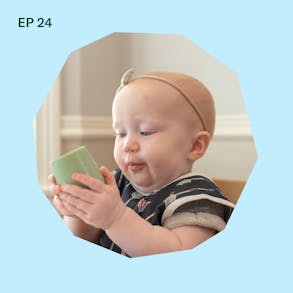
LISTEN TO THIS EPISODE
Episode Description
How much water should my baby drink? Do babies even need water? And if they do need water, when and how is the best way to give babies water?
In this episode we’re diving deep into your baby’s fluid needs. Breastmilk and/or formula meets the majority of baby’s water needs, plus the foods your baby is learning to eat contribute fluid too.
Adding extra water to your baby’s diet can be a problem. In this episode I map out the two primary problems with adding additional water too early…but also show you when you do add water, an easy way to make sure you’re offering your baby enough but not too much water.

Links from this Episode
- ezpz Tiny Cup for 6-12 month olds. Get 15% off all ezpz feeding gear when you use the code BABYLED at checkout; click here to shop.
- Baby-Led Weaning with Katie Ferraro program with the 100 First Foods™ Daily Meal Plan, join here: https://babyledweaning.co/program and get $50 off when you sign up using the code BLWPOD50
JOIN NOW AT $50 OFF CODE: BLWPOD50
- Baby-Led Weaning for Beginners free online workshop with 100 First Foods™ list to all attendees, register here: https://babyledweaning.co/baby-led-weaning-for-beginners
Resources and Research
Fewtrell MS, Morgan JB, Duggan C, Gunnlaugsson G, Hibberd PL, Lucas A, Kleinman RE. Optimal duration of exclusive breastfeeding: what is the evidence to support current recommendations? Am J Clin Nutr. 2007 Feb;85(2):635S-638S.

Latest Episodes

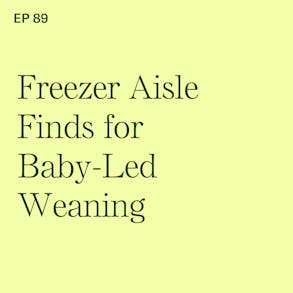
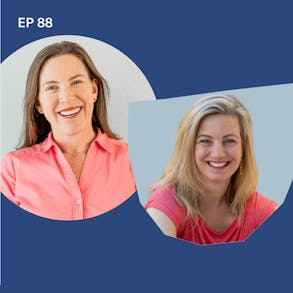
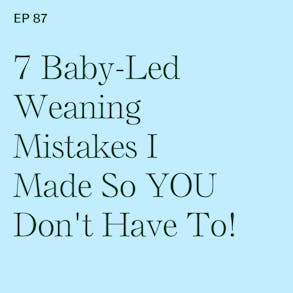
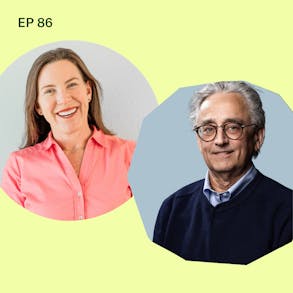
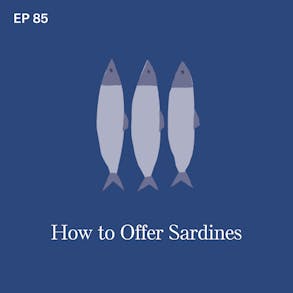
Hungry Root (0s):
My sister And I both like to cook. She has six kids, I have seven. But the primary difference between us is Kelly enjoys like scouring the internet for recipes and figuring out exactly what to make for dinner. And she actually likes going to the grocery store to buy the stuff. I, on the other hand, just wish that someone would tell me exactly every night what we are having for dinner. And also, I hate going to the grocery store to buy the ingredients for said dinner. Hungry Root has totally brought the joy back to weeknight cooking for me. So Hungry Root is more than just a meal kit. It is a personalized grocery service that actually does the thinking for you. It picks out what to cook and what groceries to buy based on your preferences, and then it delivers everything straight to your door. No more scrolling for recipes or wandering the grocery store aisles. Hungry Root does it all. I told them what kind of foods I like in the quiz. At the onboarding, they sent me a mix of fresh ingredients and easy meal kits that actually make sense for our busy life. I've got high protein meals, kid friendly snacks, even some fun treats, all made with high quality ingredients and none of the junk. And the best part, everything is super quick to make. I'm talking like 15 minutes or less and there's a normal amount of ingredients. 'cause I don't have time to open up like 15 tiny little packages. I don't have time to cook dinner from scratch. But Hungry Root does it for me. Just yesterday, last night, we had baseball games and the boys games always go so late. Like they always start that last inning, right when I'm like, oh my gosh, it's dinner time right now. I wanna go home. We got home late. But I was able to put together this amazing rigatoni olive vodka with chicken sausage dinner from Hungry Root, which to be honest, I would've never thought of looking up that recipe And I would not have gone to the store to buy the ingredients, but there they were in my Hungry Root Box. Problem solved. If you would like to streamline your family meal prep, I think you're gonna love Hungry Root as much as I do. And right now you can get 40% off your first box plus a free item in every box for life. Just go to hungry root.com/weaning and use the code weaning at checkout. That's hungry root.com/weaning code weaning for 40% off your first box and a free item for life. Check it out. It's really amazing.
Katie Ferraro (2m 0s):
So if we're forcing or encouraging excessive amounts of water, what that does is that takes up valuable room in your baby's stomach. And when your baby's stomach gets full of water and it gets distended, that distended abdomen starts sending messages to your baby's brain and tells the baby's brain, Hey, you're starting to feel full, slow down. Stop eating. We do not want to be interfering with this feedback loop that your baby is, you know, trying to get ahold of this feeling of hunger and this thing called food, which will make it go away. We don't wanna make your baby feel artificially full 'cause we're over encouraging water too early. Hey there. I'm Katie Ferraro, registered dietitian, college nutrition professor and mom of seven specializing in Baby-Led Weaning. Here on the Baby-Led Weaning with Katie Ferraro podcast.
Katie Ferraro (2m 42s):
I help you strip out all of the noise and nonsense about feeding, giving you the confidence and knowledge you need to give your baby a safe start to solid foods using Baby-Led Weaning. Water. It seems like the most natural thing in the world to drink, right? But when it comes to babies, do they actually need water? And if so, when should you start offering it? And how much is too much? Well, you might be surprised to learn that too much water too soon can actually be harmful for babies. Breastmilk or formula meets nearly all of your baby's hydration needs, particularly in the first six months of life. And then when they start solid foods, those foods contribute fluid as well.
Katie Ferraro (3m 25s):
In today's episode, I'm gonna break down everything you need to know about water for babies, walking you through why most babies do not need water prior to six months of age, how starting solid foods impacts and kind of shifts your baby's hydration needs. And then I'll talk about the right way to introduce water once your baby is ready without overdoing it. And if you like learning about food and science and how they intersect in this transition where your baby is learning to eat real food, please be sure to follow this podcast. I release two new episodes each week. I do a solo, Baby-Led Weaning training episode every Monday and then a longer interview episode with other feeding experts. Every Thursday. Follow the podcast wherever you're listening to or watching this from so you can get notified each time an episode is live.
Katie Ferraro (4m 6s):
And if Baby-Led Weaning is new to you, the best place to learn about starting solid foods safely with Baby-Led Weaning is my free online video workshop called Baby-Led Weaning for Beginners. This is a free online video training where I show you what foods are safe for babies, how to prepare them, how to lower the risk of choking. And everybody who attends this free online workshop gets a copy of my original 100 First Foods list. So you will never run out of ideas of foods your baby can eat. You can sign up for the workshop at babyledweaning.co/workshop. You can take it right after this podcast is done, or later today, tomorrow when your baby naps, whatever works for you. Again, the link to register for the free workshop is babyledweaning.co/workshop.
Katie Ferraro (4m 47s):
And if you're ready to start making all of the foods on that 100 First Foods list, that will be also offering hydration opportunities to your baby. Check out my comprehensive online program called Baby-Led Weaning with Katie Ferraro. This is where all of the videos and recipes and instructions on how to make all of the foods on the 100 First Foods Lifts, lifts, and they show you how to do that for your baby's age and stage. Plus, I have a 100 FIRST Foods Daily Meal Plan. It's literally a no brainer, so you don't even have to think about which food to feed your baby, which five foods you're gonna feed your baby every week. You can get started with that program today at babyledweaning.co/program. Now I like to start each of these mini training episodes with eight Baby-Led Weaning tip of the day.
Katie Ferraro (5m 27s):
Here's my tip for you. Do not default to water when you start doing your open cup practice so babies can start learning to drink out of an open cup by six months of age. Ideally, our goal is to transition your baby off of the bottle by 12 months of age. If you're breastfeeding, keep going longer than that. If you and baby want to, but we don't go to a sippy cup or a straw cup, we start with an open cup. Okay? We've got some resources about open cup training for you listed with some other episodes that I've done below where you're listening to this. But a lot of parents will do water right away 'cause like they don't want the baby to spill the precious breastmilk or the formula, And I get that. But what happens is sometimes when we start with water, first of all, we'll talk about the limitations of water, but it's a thin liquid and it can be a little bit more challenging for your baby to feed.
Katie Ferraro (6m 8s):
Start with the thicker liquids that your baby's already familiar with. Drinking things like Breastmilk and formula. I'll show you the tips for doing open cup training. I teach a little bit about that both inside of the workshop and inside of my program. But stick to those thicker liquids so your baby doesn't be conditioned to expect only water outta the open cup, but front end. To some families, especially of older babies, were like, oh my gosh, my baby won't drink anything outta the open cup except water. Start with Breastmilk or formula, which is your best bet for the baby. Now, hang tight because in this episode I want to share how to safely introduce water to your baby when the time is right. Now, Do babies even need water? Okay, a lot of parents assume babies need water once they start solid foods, but offering too much can actually be a problem. Okay? Adding extra water too early can be risky, okay?
Katie Ferraro (6m 48s):
Most importantly for me as a dietitian, I'm concerned that water can displace important nutrients, right? Water takes a very valuable room in your baby's stomach. And when your baby's stomach gets distended and full because it's full of water, it starts to send messages to your brain that tells the baby's brain that they're starting to be full. We don't wanna interfere with the feedback loop your baby is trying to establish between food and hunger and satiety. And we don't wanna make your baby feel artificially full because they have too much water. There is the potential that too much water can cause water intoxication, okay? It's very unlikely, but it, it can cause the sodium levels to go dangerously low. Okay? You know, your baby is hydrated without extra water when they're having regular wet diapers, good weight gain and normal energy levels. Okay? So most major health bodies recommend against additional water prior to six months of age.
Katie Ferraro (7m 32s):
And then as far as beyond six months of age, there's guidelines that say it's okay to do. It depends what resource you're looking at between four and eight ounces of water per day for six to 12 month old babies. But I want you to know you don't have to. As a rule, I generally don't even introduce water to babies until they're a little bit older, okay? And I have a whole entire episode all about water and Why Offering Water to Early Eaters Can be Dangerous. That's episode 281 at blwpodcast.com/281 and go into more detail about these limitations. We don't wanna do it too early and you don't have to do it. Okay? Remember Breastmilk and formulas providing all the hydration that your baby needs. Too much water can displace important nutrients.
Katie Ferraro (8m 13s):
It can cause water intoxication, okay? But when you are ready to do water after six months of age, And I personally don't do it until babies are in phase two of Baby-Led Weaning. So that means after they've been eating solid foods for the first eight weeks, that's when we move into multi textured combination foods. That's when we start doing the smaller pieces of food. 'cause your baby's developing their pinch or grasp, that's when they're starting to drink thickened liquids out of an open cup, quite proficiently, okay? Because our ultimate goal is to have your baby drinking out of an open cup, albeit with some spillage by the time they turn 12 months of age. So once they've got that open cup drinking with the thicker liquids mastered, then I feel comfortable moving to water. Okay? I do water from an open cup. Okay? We do Open Cups prior to straw cups, and if you'd like to learn more about that, if you go to episode 101, it's straw cup versus open cup, Which Comes First.
Katie Ferraro (9m 2s):
That's an interview with Dawn Winkelmann, who's a speech language pathologist. She's a pediatric swallowing expert. Kind of let the cat outta the bag there, but we do the open cup before the straw cup. She explains more in episode 101. But we don't do sippy cups. We don't do straw cups first. We want to practice that open cup training, and it's safer to start with the thicker liquids. Hey, we're gonna take a quick break, but I'll be right back.
Momcozy (9m 28s):
If you have ever struggled with traditional breast pumps, you know the big bulky ones with all the tubes and the wires, then listen up because there is something new that is about to make your pumping life so much easier. Momcozy a brand trusted by over 3 million moms worldwide just launched their air one ultra slim breast pump. I'm so excited about this. My pumping days are behind me, but I do distinctly remember getting pulled over by a cop while driving and pumping with a nursing cover. I was all hooked up to my car charger. The air one would've totally saved my life back in the day. Here's the deal on the air one, this is a pump designed for busy moms on the go. It's ultra slim, discreet. It's finally a pump that will not slow you down. I love that it's super compact and lightweight so you don't have to mess with any more bulky, uncomfortable pumps. The air one fits seamlessly inside your bra for total convenience. It has a transparent top for easy nipple alignment, because let's be real adjusting. A pump should not be a guessing game. It has a wireless charging case. You just pop it in, charge it up, and you're ready to go. No tangled cords, no stress. It's also whisper quiet. So it operates at under 45 decibels so you can pump confidently anywhere without worrying about noise. Plus, the soft silicone flange makes it so comfortable to use air. One is available now@target.com or at your nearest target store. That's the Momcozy Air one ultra slim breast pump. Available now@target.com or at your nearest target store. You can learn more at Momcozy dot com.
Katie Ferraro (11m 7s):
Now, don't forget that the solid foods you're continuing to introduce to your baby promote hydration. Okay? All categories of foods have varying levels of water. Even if your baby isn't quote unquote drinking free water, they are getting adequate hydration from their Breastmilk, from their formula, and from the foods that they are learning how to eat. So balance is key. Okay? A little bit of water if you're up for it, is okay, especially if you live in very extreme temperatures. If you leave it late at altitude and in some medical conditions where your baby might be taking a particular medication, they may be prone to dehydration. And in that case, a pediatric registered dietician would be helping you with your baby's unique fluid needs. Okay?
Katie Ferraro (11m 47s):
But if those things don't apply to you, the altitude, the temperature and underlying medical condition, your baby is probably getting enough water. Okay? If your baby has too much water, okay? They could have less interest in milk feeds because again, they're feeling artificially full. They'll have copious wet diapers. So you'll notice it because of that. But your baby will essentially be feeling overly full and not able to eat enough solids or to drink enough Breastmilk because you're constantly forcing water. Okay? So it's okay to stick to small sips after meals. We prioritize food in the weaning period, but only after your baby has mastered open cup drinking with thicker liquids, be that Breastmilk or formula. Okay? So babies only need to drink Breastmilk or formula and a little bit of water for older babies if and when you are comfortable.
Katie Ferraro (12m 33s):
Now, what about science of dehydration? I wanna touch on that real quickly because diarrhea is the second leading cause of child mortality worldwide that leads to dehydration. It's responsible for about 17% of deaths in children under five worldwide. And dehydration from diarrhea can be effectively treated with what's called oral rehydration therapy. I remember as a Peace Corps volunteer, I was a Peace Corps volunteer in Nepal after college, and we did a lot of training with oral rehydration therapy. Okay? And it's, there's a lot of of, I'd love to actually get an expert in that to come on the podcast to teach about it. But it's not something if your baby is well nourished, typically developing that you are going to have to worry about. But the signs of mild to moderate di dehydration, fewer wet diapers, dark yellow urine, dry lips and mouth, fussiness and irritability, if they have a sunken soft spot, they're fontanel.
Katie Ferraro (13m 20s):
Okay? That soft spot on the baby's head may appear sunken. If they have cool hands and feet, if they poor circulation, that can make the extremities feel cold or appear blotchy. Now, babies who have severe dehydration, this requires immediate medical tension. They have no wet diapers for eight or more hours. That's a sign of serious dehydration. If they're extremely lethargic or drowsy, if they have sunken eyes with dark circles, rapid breathing or fast heartbeat or no tears when crying, that indicates elute lack of fluid in the body. You should offer more Breastmilk or formula and immediately contact your primary care provider or emergency medicine. So key takeaways, no water before six months. After six months, start open cup training with a thicker liquid that your baby is familiar with and safer to swallow. And older babies are fine to sip on water somewhere between four to eight ounces a day if you want to, but you don't have to.
Katie Ferraro (14m 6s):
We start water and open cup training. We we do it out of an open cup, not out of a sippy cup or a straw cup. And all of the resources from today's episode will be on the show notes at blwpodcast.com/024. And thank you to our sponsors at AirWave Media. We're online at bwpodcast.com. Thanks for listening. I'll see you next time.
Safeguarding Sound Science (14m 33s):
Science education is key to creating a successful future, but the challenges have never been greater. I'm Matt Kaplan, host of Safeguarding Sound Science Climate Change edition. Join us for outstanding conversations with the leading researchers, policy experts, and teachers who are fighting to keep misinformation and pseudoscience out of our classrooms and off our screens. Subscribe to Safeguarding Sound Science on Apple, Spotify, Amazon, or wherever you like to listen.

The Program Baby-Led Weaning with Katie Ferraro
A step-by-step digital program for starting solid foods safely and navigating the original 100 FIRST FOODS™ meal plan with baby-led weaning.
 EXPERT-LED, PROVEN APPROACH TO EATING REAL FOOD
EXPERT-LED, PROVEN APPROACH TO EATING REAL FOOD CONCISE VIDEO TRAININGS TO MASTER BABY-LED WEANING
CONCISE VIDEO TRAININGS TO MASTER BABY-LED WEANING 100 FIRST FOODS DAILY MEAL PLAN WITH FOOD PREP VIDEOS
100 FIRST FOODS DAILY MEAL PLAN WITH FOOD PREP VIDEOS
Baby-Led Weaning for Beginners Free Workshop
Is your baby ready to start solid foods, but you’re not sure where to start? Get ready to give your baby a solid foundation to a lifetime of loving real food…even if you’re feeling overwhelmed or confused about this next stage of infant feeding.
Get baby-led weaning recipes and tips delivered to your email inbox.


